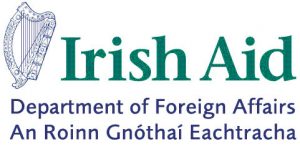On Saturday the 16th July, 2016 a Research Forum was hosted by the School of Education, University College Cork, Ireland. The title of the seminar was: ‘How do we re-present education? Development Education meets Critical Pedagogy’. The seminar was organised by Dr. Stephen O Brien and Ms. Gertrude Cotter.
The purpose of this website is to showcase the papers which were presented at the seminar and to encourage ongoing discussion and collaboration on the issues arising. Please feel free to responde to the blogs on this site or add your own. We welcome discussion and debate on these important questions.

Development Education (DE) may be defined as:
“An educational process aimed at increasing awareness and understanding of the rapidly changing, interdependent and unequal world in which we live. It seeks to engage people in analysis, reflection and action for local and global citizenship and participation. It is about supporting people in understanding, and in acting to transform the

social, cultural, political and economic structures which affect their lives and others at personal, community, national and international levels.”
(Irish Aid, 2006, 12).
Critical Pedagogy (CP) may be defined as:
“Habits of thought, reading, writing, and speaking which go beneath surface meaning, first impressions, dominant myths, official pronouncements, traditional clichés, received wisdom, and mere opinions, to understand the deep meaning, root causes, social context, ideology, and personal consequences of any action, event, object, process, organization, experience, text, subject matter, policy, mass media, or discourse.” (Shor, 1992, 129).
It is clear that both educational fields (DE and CP) have much in common. Both see education as connected to the world. They recognise education as being deeply rooted in culture and identity e.g. nationhood imaginings, history, traditions, cultural expressions (including ‘unseen’ and affective attitudes). In both fields, education is centred on transformation; it gives due expression to protest, to the need for constant change. Education is highly visionary; it offers hope for a more inclusive society and draws its theoretical power from particular (humanist, social and critical) theories of learning. Education is a lived process; perhaps an ‘other’ process but, certainly, there can be no imposed product-oriented or standardised template. And education is for everyone – not just for those on the margins of society but (perhaps especially) for those who hold and exercise dominant forms of political and cultural capitals.
Perhaps now, more than ever, these two important educational fields need to draw upon their synergies in order to respond to ‘education in our times’. What have they got to say about those who are ‘interested’ in education, particularly those whose ‘interest’ is framed within the neoliberal paradigm? What have they got to say about the problem of the (mis-)representation of education and the dislocation of ‘lived’ learning? How can they further a new scientific purpose via the enlightenment of new ideas that inspire change and that will still attract the ‘interest’ of a (postmodern) public? How can they help us make new educational ‘sense and sensibility’ (O’Brien, 2016). In short, and in keeping with their praxiological purpose, how can DE and CP help us to re-present education?
We were delighted to welcome to University College Cork leading scholars in both fields who spoke directly to these questions. They reminded us that proposed responses are very difficult and complex; that a rewriting of cultural and personal scripts is not without its problems; that ‘communicative action’ (Habermas, 1981) to oneself and others is (at the very least) challenging. But their scholarly insights and imaginings offered us much hope for change. They reminded us too of the hidden power of DE and CP work; that we can become more conscious of pre-existing cultural meanings that repress (Thomas, 1993); that we can use other language forms, take scientific and personal/professional comfort from and with ‘others’, and continue to speak to and against ‘our times’ (albeit in certain ways). Perhaps even if we cannot significantly change our material circumstances, we can still find our more authentic self elsewhere located – even in ‘symbolic’ work (Willis, 2000).
We greatly apprecaited the opportunity to explore these and other scientific and creative ideas. We learned a great deal from our keynote speakers and from others present at the forum – not least postgraduate students, practitioners, activists and community educators. This, to our knowledge, is the first formal event of its kind in Ireland and it is hoped that it has inspired and can continue to inspire more ‘bricolage’ (Kincheloe, 2005) gatherings and networks. We can begin to inspect our own learning outlook; to advance new ideas, new language and new ‘socio-symbolic’ spaces when we can make new connections within and across education.
Our thanks to all those who attended and we welcome any contributions you would like to make on this site.
Stephen O’Brien and Gertrude Cotter
Funder
We are very grateful to the Ubuntu Network for funding provided for this seminar.
The Ubuntu Network is funded by Irish Aid, to whom we are grateful.


